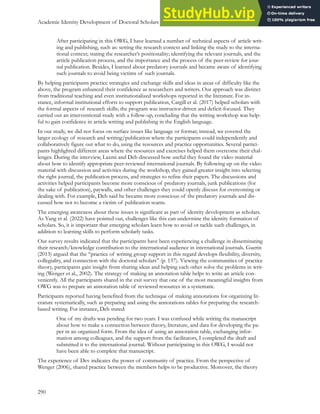Breaking Bread With Scholars: A Guide To Meaningful Academic Discussions

Table of Contents
Meaningful academic discussions are more than just a collection of opinions; they're collaborative explorations of ideas, characterized by respectful disagreement, active listening, and a commitment to shared learning. They involve thoughtful consideration of diverse perspectives, a willingness to engage with counterarguments, and a pursuit of deeper understanding. Successfully navigating these scholarly conversations requires preparation, skill, and a commitment to fostering an inclusive environment. This guide will provide practical strategies for participating in and leading fruitful scholarly conversations.
Preparing for Meaningful Academic Discussions
Effective participation in academic discussions begins long before you enter the room. Thorough preparation lays the groundwork for contributing meaningfully and respectfully to the exchange of ideas.
Understanding the Context
Before engaging in any academic discussion, it's crucial to understand the context. This involves several key steps:
- Researching the topic beforehand: Familiarize yourself with the subject matter, key concepts, and relevant scholarly literature. The more you know, the more informed your contributions will be. Thorough research will also allow you to identify potential areas of disagreement and formulate thoughtful responses.
- Familiarizing yourself with key authors and perspectives: Understanding the major players in the field, their arguments, and their relationships to one another will broaden your understanding and allow you to engage with the conversation on a deeper level. This is particularly important for scholarly conversations in established fields.
- Understanding the discussion format: Knowing whether the discussion is a formal debate, an informal seminar, or a roundtable discussion will help you tailor your approach. The rules of engagement and expected level of formality will vary across these formats.
Understanding the context allows you to contribute meaningfully to the discussion, demonstrating both your knowledge and your commitment to engaging with the topic respectfully.
Formulating Your Points
Once you understand the context, it’s time to formulate your points. This involves developing clear, concise arguments that are supported by evidence.
- Developing clear arguments: Frame your points as clear, concise arguments that directly address the topic at hand. Avoid ambiguity; ensure your ideas are readily understandable.
- Supporting claims with evidence: Every assertion you make should be supported by evidence from credible sources. Cite your sources appropriately to maintain academic integrity.
- Anticipating counterarguments: Consider potential objections to your points and prepare responses. Acknowledging opposing viewpoints shows intellectual humility and strengthens your argument.
Strong thesis statements form the foundation of compelling arguments. For example, instead of stating "Social media is bad," a stronger argument might be: "The pervasive nature of social media contributes to increased anxiety and depression among young adults due to its impact on self-esteem and social comparison." This provides a clear focus and sets the stage for a well-supported argument within the context of the academic discussion.
Active Listening and Note-Taking
Active listening and effective note-taking are paramount for meaningful participation in academic discussions.
- Strategies for effective listening: Pay close attention to what others are saying, both verbally and nonverbally. Try to understand their perspectives, even if you disagree. Avoid interrupting and focus on comprehending the speaker's complete message.
- Techniques for note-taking during discussions: Develop a system for jotting down key points, questions, and areas of disagreement. This will aid your recall and enable you to respond thoughtfully.
- Identifying key points and areas of disagreement: As you listen, identify the main points of the discussion and note where disagreements arise. This will help you focus your contributions.
Active listening is not just about hearing; it’s about understanding different perspectives and formulating thoughtful responses. It's a crucial component of meaningful academic discussions, fostering genuine intellectual exchange.
Participating in Meaningful Academic Discussions
Preparation is vital, but skillful participation is what truly elevates your contribution to scholarly conversations.
Respectful Engagement
A cornerstone of any productive academic discussion is respectful engagement.
- Maintaining a respectful tone: Even when disagreeing, maintain a civil and respectful tone. Avoid interrupting or talking over others.
- Acknowledging differing viewpoints: Recognize and appreciate the validity of opposing perspectives, even if you don't agree with them.
- Avoiding personal attacks: Focus on the ideas being presented, not the individuals presenting them. Personal attacks undermine the integrity of the discussion.
- Engaging in constructive criticism: Offer criticism in a way that is helpful and insightful, rather than destructive or dismissive.
Creating a safe and inclusive space is crucial for open dialogue. Respectful communication is the bedrock of meaningful academic discussions.
Contributing Effectively
Contributing effectively involves more than just speaking; it's about adding value to the conversation.
- Offering insightful comments: Share your perspectives, supported by evidence and reasoned arguments. Contribute to the discussion by offering new insights or perspectives.
- Asking clarifying questions: Don't hesitate to ask for clarification if something is unclear. This demonstrates engagement and encourages a deeper understanding of complex ideas.
- Building upon others' ideas: Use the contributions of others as a springboard for your own comments, showing how your perspective relates to or builds upon theirs.
- Challenging assumptions respectfully: If you disagree with a particular assumption or claim, respectfully challenge it with evidence and reasoned argument.
Meaningful contributions involve actively engaging with what others have said, making your points clearly and concisely, and avoiding unnecessary interruption.
Managing Disagreements
Disagreements are inevitable in academic discussions, but they can be navigated productively.
- Techniques for respectfully disagreeing: Express your disagreement clearly but respectfully, focusing on the ideas rather than the individuals. Use phrases like, "I understand your point, but I have a different perspective..."
- Focusing on ideas rather than personalities: Keep the focus on the ideas being discussed, not on the personalities of those involved. Personal attacks are unproductive and damaging to the conversation.
- Finding common ground: Even in disagreement, look for areas of common ground. This can help build bridges and foster a sense of collaboration.
- Acknowledging limitations in knowledge: Be open to the possibility that you may not have all the answers, and be willing to learn from others.
Productive disagreement is a hallmark of meaningful academic discussions. It's an opportunity for learning and growth for all participants.
Leading Meaningful Academic Discussions
Leading a productive academic discussion requires skill and foresight. A skilled facilitator can guide the conversation toward constructive outcomes.
Setting the Stage
Before the discussion begins, it's crucial to set the stage for a successful exchange.
- Establishing clear guidelines for participation: Set clear expectations regarding speaking time, respectful communication, and the overall tone of the discussion.
- Setting the tone for respectful engagement: Establish a welcoming and inclusive environment where everyone feels comfortable sharing their perspectives.
- Creating a welcoming environment: Encourage active listening, respectful dialogue, and a collaborative atmosphere.
A well-defined structure and clear guidelines lay the foundation for a productive discussion.
Guiding the Conversation
During the discussion, the facilitator plays a crucial role in guiding the flow of conversation.
- Encouraging participation from all attendees: Ensure that everyone has an opportunity to contribute, and actively solicit input from those who may be hesitant to speak.
- Facilitating a balanced exchange of views: Keep the conversation balanced, ensuring that all perspectives are heard and considered.
- Summarizing key points: Periodically summarize the main points of the discussion to ensure that everyone is on the same page.
- Steering the discussion toward productive outcomes: Gently guide the conversation back on track if it veers off topic or becomes unproductive.
Effective facilitation ensures all voices are heard and the discussion progresses productively.
Facilitating Closure
Concluding a discussion effectively is just as important as starting it well.
- Summarizing key takeaways: Summarize the main points of the discussion, highlighting areas of agreement and disagreement.
- Identifying areas of agreement and disagreement: Clearly articulate the points of consensus and the areas where further discussion or research are needed.
- Proposing next steps for further discussion or research: Suggest concrete steps for moving the conversation forward, such as further research or future meetings.
A clear and concise conclusion leaves participants with a sense of accomplishment and a clear path forward.
Mastering the Art of Meaningful Academic Discussions
This guide has explored the key components of meaningful academic discussions, highlighting the importance of thorough preparation, respectful engagement, and effective participation. Whether participating or leading, remember that these discussions are opportunities for intellectual growth and collaboration. Engaging in scholarly conversations enhances critical thinking skills, broadens understanding, and fosters intellectual curiosity. Mastering these skills benefits both your personal and professional development.
Start breaking bread with scholars today by implementing these strategies for more meaningful academic discussions. Continue exploring resources on effective communication and scholarly debate to further refine your skills and foster a richer academic experience. Remember, the pursuit of knowledge is a collaborative journey, and meaningful academic discussions are essential to its success.

Featured Posts
-
 Check Lotto And Lotto Plus Results Wednesday April 2 2025
May 08, 2025
Check Lotto And Lotto Plus Results Wednesday April 2 2025
May 08, 2025 -
 Xrp Etf In Brazil Ripple News Dominates Headlines After Trumps Ripple Share
May 08, 2025
Xrp Etf In Brazil Ripple News Dominates Headlines After Trumps Ripple Share
May 08, 2025 -
 Los Angeles Angels Games Streaming Options For Cable Free Viewers 2025
May 08, 2025
Los Angeles Angels Games Streaming Options For Cable Free Viewers 2025
May 08, 2025 -
 Another Canada Post Strike Possible What To Expect
May 08, 2025
Another Canada Post Strike Possible What To Expect
May 08, 2025 -
 White House Cocaine Incident Secret Service Concludes Inquiry
May 08, 2025
White House Cocaine Incident Secret Service Concludes Inquiry
May 08, 2025
